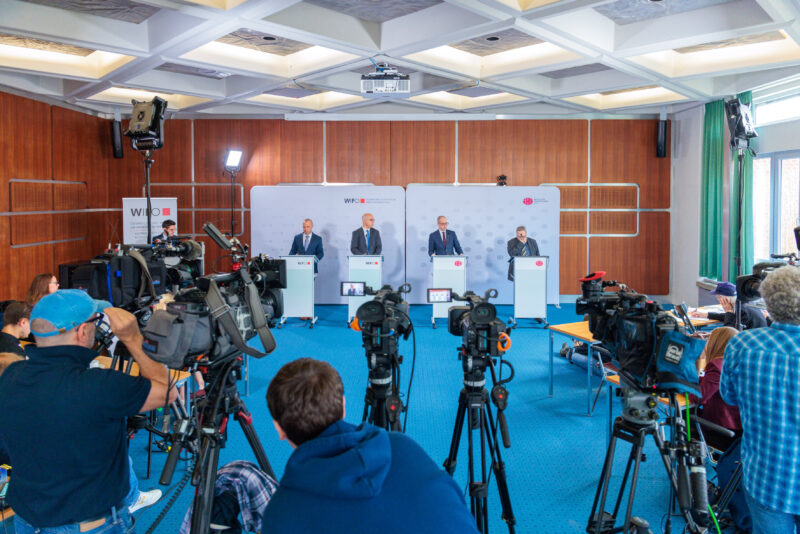
Start of Wage Negotiations in the Public Sector
The Austrian economy continues to lose momentum and grows only moderately in the forecast period. The weakness of the global economy is dampening export and industrial growth. By contrast, favourable financing conditions, fiscal stimuli and robust consumer demand continue to support the economy. GDP is expected to increase by 1.7 percent in 2019 and by 1.4 percent in 2020.
Austrian exports should expand at noticeably lower rates in the forecast period than in previous years. The gradual slowdown in the economy is having an impact on the labour market. Employment growth slowed continuously in the first eight months of 2019. The decline in unemployment also slowed significantly in 2019. The turnaround in the labour market can also be seen in the fact that unemployment among older people aged 55 and over, people with health impairments and long-term unemployed persons is already rising again.
Inflation weakened markedly at the end of 2018 and is expected to remain moderate over the forecast period. According to the national definition, consumer prices will rise by 1.6 percent in 2019, while the inflation trend between October 2018 and September 2019, which is decisive for wage negotiations in the public sector, will be slightly higher at +1.73 percent. Next year, inflation is expected to rise by +1.7 percent.
Please contact
























